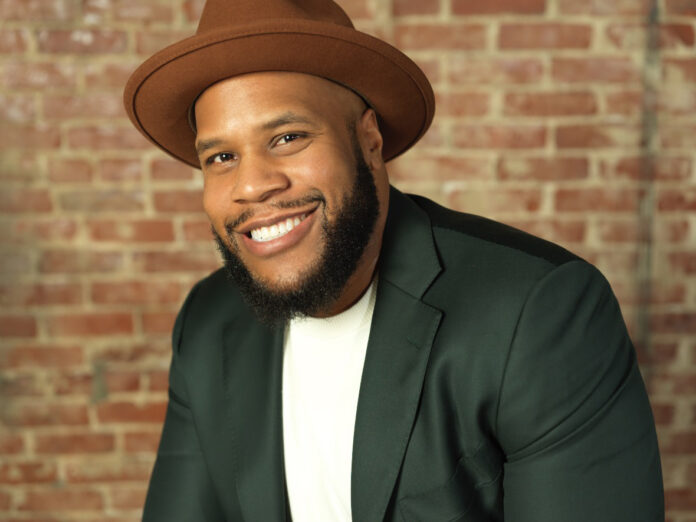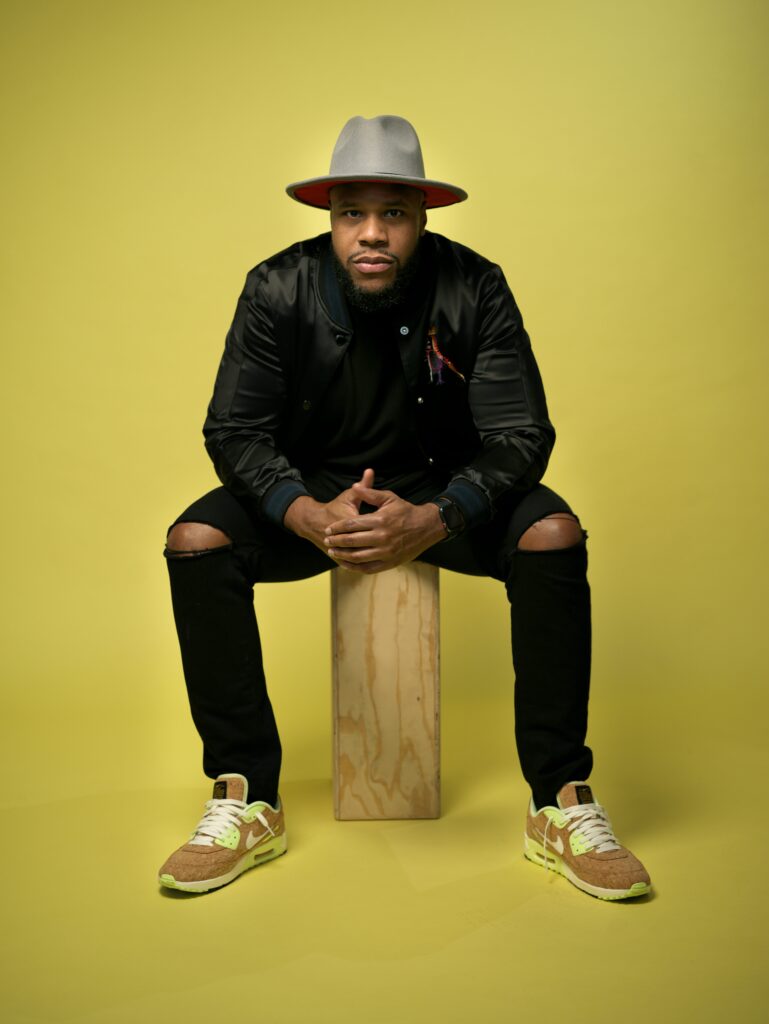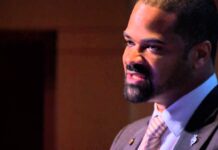Ryan Robertson’s life journey offers a powerful blueprint for legacy leadership, cultural stewardship, and entrepreneurial courage. After carving out an impressive career with global brands like Procter & Gamble, Popeyes, and Diageo, he made a pivotal return to his family’s legacy—the Trust Marketing and Spotset Radio Network (TM&SRN). With a foundation built by his parents more than three decades ago, Ryan now leads with a modern edge rooted in both strategic rigor and cultural soul. From launching a music-streaming platform to redefining what it means to authentically serve Black audiences, his work sits at the intersection of purpose and performance. In this conversation, Ryan shares how he bridges the gap between tradition and innovation, why ownership is the future, and what it really takes to lead with both heart and hustle.
TNJ: When did you know it was time to return to the family business?
Robertson: It wasn’t a single dramatic moment—more like a little voice that grew louder over time. I had reached a point in my corporate career where I had a seat at the table, but I was starting to feel disconnected from the reasons I got into this work: To create stories, move culture, and drive real change. The internal shift came when I realized I could either keep optimizing billion-dollar portfolios for global conglomerates or pour that same energy into building something with deeper legacy and purpose for us—my family’s business. What ultimately pulled me in was the potential. I saw that Trust Marketing and Spotset Radio Network had the foundation, the trust, and the cultural credibility. What it needed was someone to modernize, expand, and future-proof it.
TNJ: How has your corporate background informed the way you lead the company?
Robertson: Corporate gave me the discipline of scale—how to make decisions with both rigor and vision. But what I bring now is the ability to marry structure with soul. Sure, I know how to analyze brand performance dashboards and build go-to-market plans, but I also know how to advocate for the value of Black and diverse voices in rooms that still underestimate us. At Trust and Spotset, I lead with both sides: we’re just as fluent in key performance indicators (KPIs) and media plans as we are in cultural nuance and community relevance. That dual fluency comes directly from navigating the Fortune 500 world as a Black business and creative leader.
TNJ: How did you balance maintaining the dynamics of what was built with innovation and modernization?
Robertson: Respect is the foundation. I didn’t come in changing things—I came in listening. I took time to understand not just what we do, but why we do it that way. Only then did I begin introducing change. I focused on modernization without disruption: reimagining workflows, bringing in data and insight-backed strategy, studying financials closely, and expanding our client base. And through it all, I preserved the core principles my parents established thirty-four years ago: community, relationships, and trust. It’s about leaning into legacy and being a worthy student and steward of it in today’s environment.
TNJ: What strategic moves contributed to sustained growth or impact?
Robertson: Three things stand out. First, repositioning Spotset Radio Network as a vital partner for national brands—not just a vendor, but also a strategic media ally. Second, investing in digital transformation, including launching the Play Ode music-streaming app and streamlining how we measure impact and distribute content. Third, doubling down on talent—especially creative and analytical thinkers of color—who bring fresh thinking and deep cultural insight. These moves have made us more agile, competitive, and compelling to both legacy and emerging clients.
TNJ: Spotset Radio Network plays a critical role in preserving and amplifying Black-owned media. How do you view your own role in that larger ecosystem?
Robertson: I see us as part of a cultural protection agency. Our job isn’t just to sell media—it’s to safeguard and elevate voices that corporate media has historically sidelined. We’re fighting for ownership, access, and investment—not as charity, but as smart business. Since 2020, all population growth in the U.S. has been driven by communities of color. Investing in Black-owned media is the smartest, most strategic move brands can make. Our role is to ensure this media not only survives, but also thrives as an essential part of the national media mix.
TNJ: How do you define culturally connected branding?
Robertson: Culturally connected branding isn’t about referencing culture—it’s about being in relationship with it.
TNJ: What are the non-negotiables when crafting campaigns for diverse audiences?
Robertson: The non-negotiables are: representation at every level of the process; substance over stereotypes; and relevance delivered with respect. As my father, the media O.G., always says, “the work must resonate and reflect.”
TNJ: What lessons from your high-level corporate roles do you apply now?
Robertson: At P&G, I learned the power of precision and consumer insight. At Diageo, how to manage a portfolio with both data and intuition. At Popeyes, I saw how brand transformation can happen on a global scale when you lean into culture unapologetically. Now, I bring all of that into entrepreneurship—with more freedom, urgency, and a sharper sense of mission.
TNJ: Beyond your accolades from Cannes Lions, Ad Age, and others, what does success look like for you?
Robertson: Awards are great, but they’re not the reward. The real win is impact. Did the work move someone? Did it shift perception or redirect dollars? Success today looks like building content that outlasts campaigns. It’s about creating opportunities, owning our narratives, and helping Black creatives and media owners win long after the trophies are shelved.
TNJ: How do you stay ahead of marketing trends while remaining true to the cultural pulse of your audience?
Robertson: I stay close to culture—but even closer to the people shaping it. Beyond industry trades, I track underground creators, emerging platforms, and real conversations happening online and in our communities. Ironically, staying ahead also means building intergenerational teams. I put 24-year-old strategists and 60-year-old storytellers in the same room. That tension creates brilliance—and balance.
TNJ: How do you prioritize the flow of national advertising dollars to Black-owned media in a system that hasn’t always valued equity?
Robertson: We’ve moved from awareness to accountability. We show brands that investing in Black-owned and targeted media is not a DEI gesture—it’s a business growth strategy. We bring trust, cultural insight, and measurable results. Our message is simple: if you want to reach Black audiences authentically, you must invest in the ecosystems that sustain them. Anything less is performative.
TNJ: You’ve worked with global brands, now you run legacy businesses while being engaged in the arts. How do these influence one another in your leadership style?
Robertson: They keep me balanced. Global brands taught me discipline and scale. The family business taught me resilience and respect. The arts keep me imaginative, expressive, and grounded. Together, they push me to lead with both rigor and empathy—to think big but never lose the soul of the work.
TNJ: Your resume reflects excellence in strategic execution and creative production. How do you nurture the two sides of that spectrum?
Robertson: Strategy and creativity are two sides of the same coin. Strategy is the what and why, while creativity is the how. I treat them equally—instilling that in our teams, too. Our strategy sessions are as sacred as creative brainstorms, as essential as P&L reviews. The magic happens when data tells you what’s true, strategy confirms it, and creativity makes it unforgettable.
TNJ: What key questions should corporate professionals ask themselves before moving to entrepreneurship?
Robertson: Ask yourself: Are you running from something or toward something? Can you make hard decisions when the stakes are high? Do you believe in your vision enough to pitch it fifty times and still hear “no?” Entrepreneurship is freedom, yes—but it’s also responsibility. If you’re ready to bet on yourself, it’s one of the most rewarding leaps you can take. I was fortunate to lead a company my parents built and sustained for thirty-four years. My mission: don’t mess it up.
TNJ: What is the most urgent opportunity or responsibility for the next generation of leaders?
Robertson: Ownership. Content is currency, but true influence lies in controlling how it’s created, distributed, and monetized. The next generation must not only create culture, but also own the means of production. We need more Black buyers, planners, producers, and strategists—not just in the room, but leading it. Representation is the starting point. The goal is equity and generational wealth.









